Macao will ease reliance on casinos
Updated: 2015-03-25 07:45
(Agencies)
|
||||||||
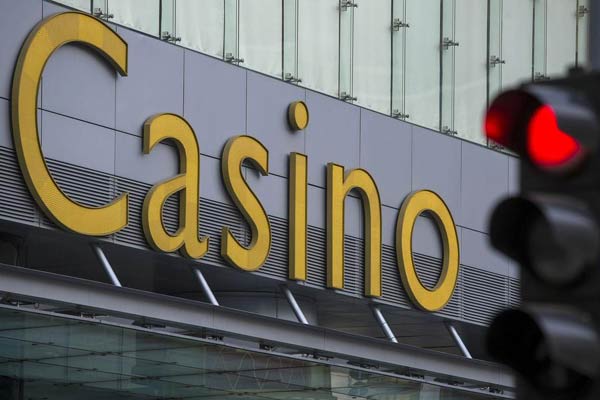 |
|
A traffic light is pictured in front of the Starworld Macao Casino in Macao, February 17, 2015.[Photo/Agencies] |
The Macao Special Administrative Region slashed its monthly gambling revenue forecast 27 percent, as the city's chief executive pledged a five-year plan to make the world's largest gaming hub less dependent on casinos.
The city expects average gross monthly gaming revenue of 20 billion patacas ($2.5 billion) this year, down from an earlier estimate of 27.5 billion patacas, Chief Executive Fernando Chui said on Monday. Macao has entered an "adjustment" period of slower growth and needed to develop a broader range of attractions to draw tourists from around the world, he said.
Tim Craighead, head of Asian research at Bloomberg Intelligence, said: "We think this is pretty pessimistic, though it may be better for an official to slash things so much that they can then eventually get into positive revision mode from a low base. If they use this as a base assumption, it emphasizes the need to diversify the economy, which is already in the plans."
Gaming revenue is expected to fall for a second year, battering the local economy and the share prices of casino operators such as Sands China Ltd and Galaxy Entertainment Group Ltd.
Chui's tourism panel would draft a five-year plan for stable casino growth while expanding the city's tourist offerings, the chief executive said. The government will evaluate the development of the gaming industry since ending local casino mogul Stanley Ho's monopoly in 2002 and opening casinos to foreign operators, with the goal of strengthening oversight.
"Even though the economy has faced major difficulties and challenges, the overall fundamentals of the economy are good," Chui told legislators on Monday, his first policy address since starting a second term in December. "The pace of economic growth has slowed, prompting us to accelerate economic diversification."
The government also plans to improve airport facilities and expand airline services, Chui said.
Macao's economy shrank 17 percent in the final quarter of last year as casino revenues slipped 2.6 percent, the first such annual decline.
According to the median estimate of nine analysts surveyed by Bloomberg News in January, gaming revenues would probably drop another 8 percent this year. The most pessimistic expected a 21 percent decline.
The new projection provided by Chui in a post-speech briefing would represent a 32 percent decline from last year's average of 29.3 billion patacas, according to data from Bloomberg Intelligence.
The government's projection has not historically been a good indicator, D. S. Kim, an analyst at JPMorgan Chase & Co, wrote in a note on Tuesday, saying he would leave unchanged his estimate of an 18 percent drop.
Kim joined Barclays Plc in predicting a March casino revenue casino decline of 36 percent to 39 percent.
Diversifying Macao's economy would take 20 to 30 years and the city should accelerate efforts, Li Gang, director of the central government's local liaison office, said this month.
The government has been requiring casino operators to add non-gaming elements to their projects to draw vacationing visitors and Chui said on Monday the government would continue to push for better balance between high rollers and mass-market gamblers at resorts.
- China to evacuate citizens from Yemen
- Two graft-involved Chinese fugitives taken back from Laos
- Consumer poll reveals products with lowest satisfaction scores
- China unveils action plan on Belt and Road Initiative
- BRICS countries consent to promote judicial cooperation
- Asian countries to seek win-win co-op: Xi
- Lee Kuan Yew eulogized at funeral as architect of Singapore
- Voting for presidential election begins in Uzbekistan
- Myanmar ethnic joint group calls for ceasefire amid peace talks
- Australia announces it will join China-proposed bank
- Germanwings pilot planned big gesture, says ex-girlfriend
- 'Behind-the-scenes' visit at Paris Zoological Park
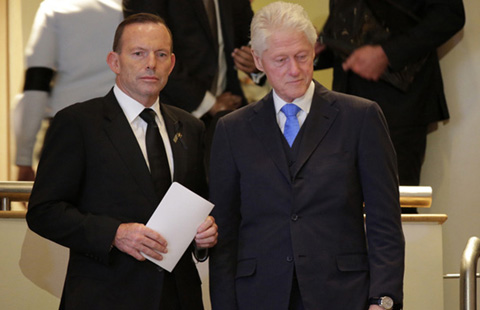
 World dignitaries at state funeral of Lee Kuan Yew
World dignitaries at state funeral of Lee Kuan Yew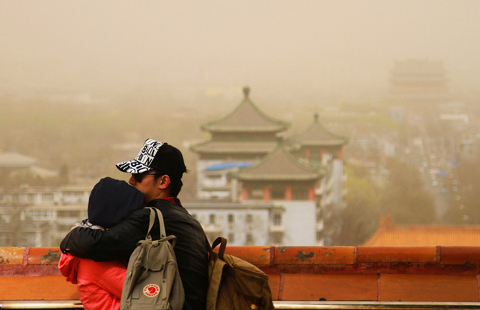
 Sandstorm shrouds Beijing
Sandstorm shrouds Beijing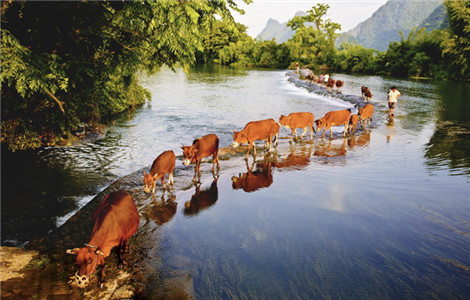
 Yangshuo, a county of karst landforms
Yangshuo, a county of karst landforms
 World leaders open Boao Forum for Asia 2015
World leaders open Boao Forum for Asia 2015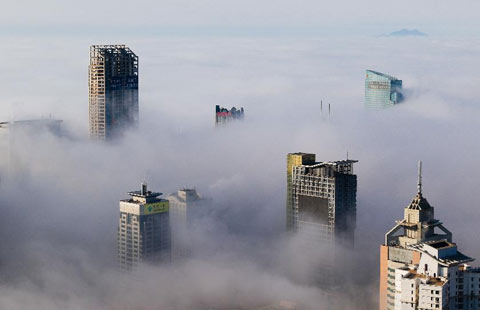
 Buildings covered by fog in China's Qingdao
Buildings covered by fog in China's Qingdao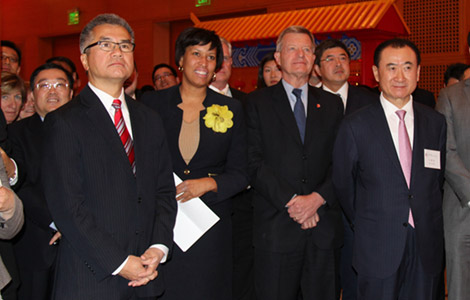
 Across America over the week (from March 20 to 27)
Across America over the week (from March 20 to 27)
 Walking tall
Walking tall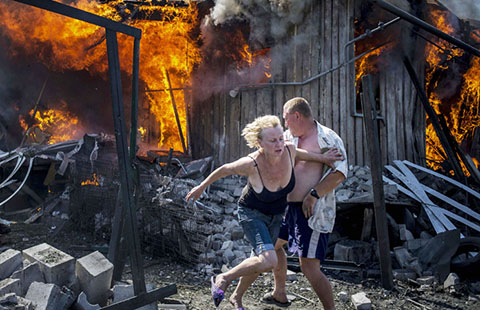
 Press photo competition winners announced
Press photo competition winners announced
Most Viewed
Editor's Picks

|

|

|

|

|

|
Today's Top News
China eyes $2.5 tln annual trade volume with Belt and Road countries
Chinese Vice President attends Lee Kuan Yew's funeral
LA commuter train hits car, partially derails; 21 hurt
Asian countries to seek win-win cooperation: Xi
'Made in China' to 'Made in USA'
More countries to join China-backed investment bank
Grassland city looks to cloud computing
Scenic Hohhot wants to be smart based on emerging industries
US Weekly

|

|







